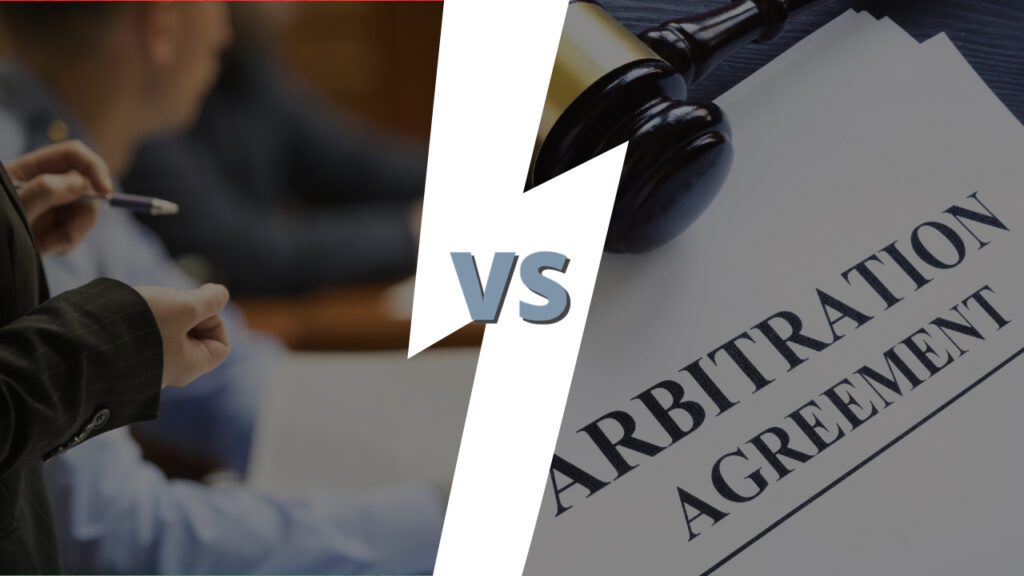Written By Chris Dolan and Carole Okolowicz
This week’s question comes from John from San Francisco, who asks: What is the difference between having a trial versus going to mediation?
Dear John,
There are many ways to resolve a legal dispute, whether a lawsuit is filed or not. Most people have heard of a trial in front of a jury because the media has popularized it. However, most cases do not go to trial. Experts have estimated that some 98% of all legal disputes resolve before trial. I will explain these options for resolving legal disputes: settlement, mediation, arbitration, and trial.
Informal Settlement Negotiations
Most cases resolve through settlement. Mediation is a method used to achieve a settlement. (More on that later.) Where criminal cases typically seek to put a person in jail, civil cases seek monetary compensation for the harm caused. Since the goal is for the suing person to get money if the person sued agrees to pay, there is no longer a need for the lawsuit. Lawyers often write a demand letter, which is a letter that lays out the known facts of the case, any evidence the plaintiff has in their possession (a police report, medical records, photos, employment records), and the legal reasons why a jury would award money should the case go to trial. Sometimes the two sides can work out a deal through informal communications like emails and phone calls. In these situations, the plaintiff will typically agree not to file a lawsuit concerning the matter and the defendant will agree to pay the agreed amount. Note that this is a voluntary settlement. Neither party is forced to pay; no party is forced to dismiss the case or agree to not sue. The parties decide to avoid litigation, or further litigation, by resolving the matter informally.
Mediation
If informal settlement negotiations are not possible, the parties may seek to resolve the matter through mediation. Mediation is a means to achieve a voluntary settlement. When parties agree to mediate, they hire a neutral person to help resolve the case. At an agreed-upon time and place (or remotely), the parties go into separate rooms and the neutral mediator talks separately to both sides. Many mediators are retired judges or seasoned litigators so they will often provide insights as to how a jury might think about certain aspects of the case. The mediator’s goal is to get both sides to agree on a settlement amount. As with informal settlement negotiations, each party typically writes a brief that, like a demand letter, lays out the facts, law, and evidence.
It is a common saying that a good mediation is one in which both sides leave unhappy. The plaintiff worries they could have gotten more; the defendant worries they paid too much. But the benefits of settling at mediation are great. As with settling through informal negotiations, the parties save on continued litigation costs, including the cost of a trial which can be very expensive. There is a cost associated with litigation. The mediator charges a fee and mediations can often take a whole day of your attorney’s time. But the cost is much less than trial. Further, trials are risky, and the outcome can be hard to predict. Settlements are certain.
Arbitration
Arbitration is another route to settlement, but unlike the two options discussed above, where resolution is voluntary, it is typically binding. Arbitration is a private court. Like mediation, the parties must voluntarily agree to enter into arbitration; you cannot be forced into arbitration. However, embedded in fine print in many of the agreements we are asked to approve before using everyday items and services, like our cell phones, apps or software, streaming services, rideshare transportation, and medical services, is an agreement to arbitrate any legal disputes.
A judge following state or federal rules oversees your case when a lawsuit is filed. When the parties agree to arbitration, a neutral arbitrator or group of arbitrators oversees your case. The parties may agree to the rules they will follow, which often mirror state or federal rules. Arbitration can be faster, more efficient, and cheaper than court litigation and trial. As in court litigation, the parties can demand documents and information from each other through a discovery process, but it is expedited and limited. Arbitration typically ends with a hearing, like a trial, in which witnesses testify. At the end of the hearing, the arbitrator – not a judge or jury – decides. That decision is binding, which means the parties must abide by it. The parties can only dispute an arbitration award on narrow grounds; the intent is that the decision is final. Arbitration is costly but can often be less expensive than litigation and a trial, depending on the case.
Trial
A trial is often the last resort. Trials are a risk for both sides. First, they are expensive. At trial, the burden is on the plaintiff to prove their case. That means unless the defendant agrees that the plaintiff was injured, for example, the plaintiff has to prove that they was injured. That often requires getting the emergency room doctor, nurses, EMTs, orthopedic doctors, primary care doctors, and other health care providers to testify that you were injured. Your attorneys will likely have to hire experts to provide an opinion to persuade the jury. Healthcare providers’ and experts’ time can be very valuable and can get into the thousands of dollars. Your attorneys may hire someone to make trial exhibits to show the jury. Your attorneys will be working on your case night and day before and during the trial. Trials can easily cost hundreds of thousands of dollars. Trials are costly and risky.
If you prove your case, a jury may award you damages. Some juries award larger damages, and some juries award smaller damages. Some jurors do not believe in compensating injured persons for pain and suffering and may only agree to award your medical costs. Most jurors in a civil trial must agree to form a verdict.
While trials can be dramatic, they are typically not as fun as watching a trial on tv, even a real one. That is because it is your money, your health, and your life that is going to be decided. If you win, it can be vindicating as well as exhausting. If you lose, it can be defeating – and exhausting. If you are a plaintiff or defendant, you generally must be present each day of the trial. You typically will testify at trial, possibly for a day or multiple days. Trials can be any length, from days to months.
However, sometimes trial is unavoidable. If the other side has offered nothing or very little, and your attorneys believe you have a strong case, you may have no option but to go to trial.
The Dolan Law Firm is a trial firm, meaning we will use all our legal resources available and are always ready to go to trial for you.










